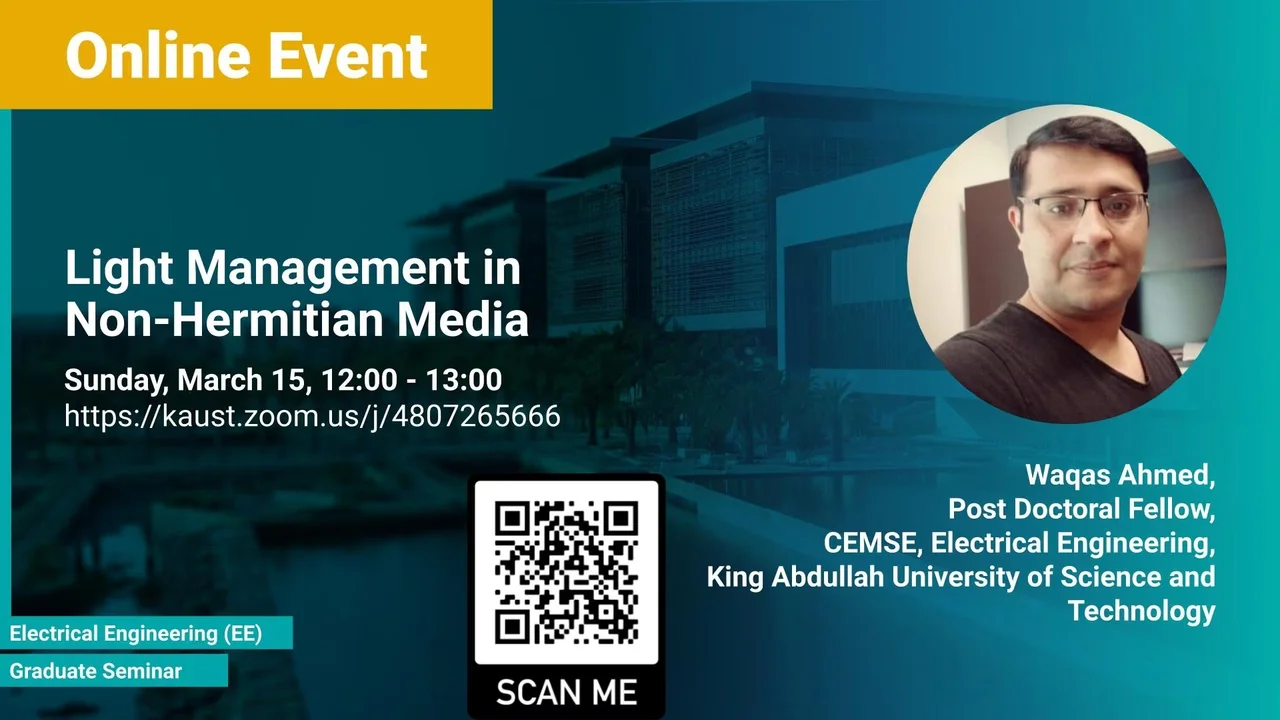
Light management in non-Hermitian media
- Dr. Waqas Ahmed, Electrical Engineering, King Abdullah University of Science and Technology
KAUST
Structured media provide the momentum compensation for the scattering of waves. It is well-known that nano-scale modulations of the refractive index may lead to a temporal and spatial control over light propagation. Yet, also engineering the gain and loss profile uncovers analogous shaping effects. However, only the interplay between both the refractive index and gain and loss modulations introduces unidirectionality in light management. Thus, non-Hermitian optics has become one of the most fertile grounds in optics. A generalized Hilbert transform allows tailoring the two quadratures of the complex permittivity to design periodic or disordered non-Hermitian media, holding either global or local unidirectionality following arbitrary vector fields to tailor the flow of light. The method allows restricting the permittivity within realistic values rendering it suitable for applications.
Overview
Abstract
Structured media provide the momentum compensation for the scattering of waves. It is well-known that nano-scale modulations of the refractive index may lead to a temporal and spatial control over light propagation. Yet, also engineering the gain and loss profile uncovers analogous shaping effects. However, only the interplay between both the refractive index and gain and loss modulations introduces unidirectionality in light management. Thus, non-Hermitian optics has become one of the most fertile grounds in optics. A generalized Hilbert transform allows tailoring the two quadratures of the complex permittivity to design periodic or disordered non-Hermitian media, holding either global or local unidirectionality following arbitrary vector fields to tailor the flow of light. The method allows restricting the permittivity within realistic values rendering it suitable for applications.
Brief Biography
Waqas is currently a Postdoctoral Fellow with Professor Ying Wu at KAUST. He received his B.S. degree in Electronic Engineering from Ghulam Ishaq Khan Institute of Science and Technology (GIKI), Pakistan, in 2009, his MS degree in Electrical Engineering from King Fahd University of Petroleum and Minerals (KFUPM), Saudi Arabia, in 2014, and his Ph.D. in Photonics Engineering from Universitat Politècnica de Catalunya (UPC), Spain, in 2018. His research is in the fields of non-Hermitian optics, nanophotonics, artificial structured materials, laser physics, and metamaterials.